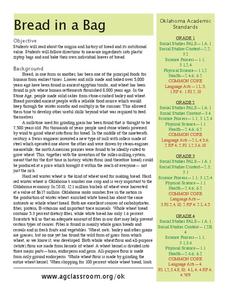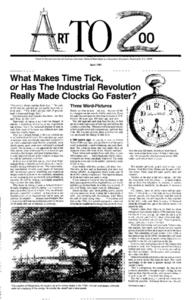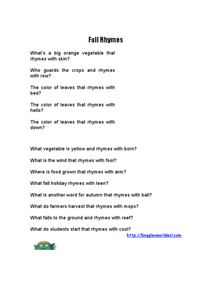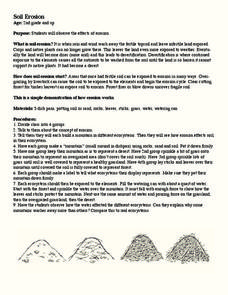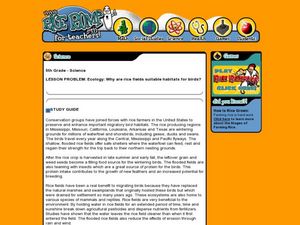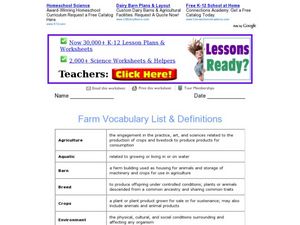Curated OER
Bread in a Bag
Students explore wheat. In this bread making instructional activity, students make their own loaf of bread and discover the history behind wheat. They work in pairs to follow step-by-step instructions for making the bread. This...
Curated OER
Wheat: From Field to Oven
How does wheat go from the seed to the table? While focusing on main ideas and supporting statements, class members read an excerpt about wheat production and complete a worksheet. The end goal is a display that shows the different...
Curated OER
Bread in a Bag
This activity focuses on making bread, but also spends some time on the origins of wheat. In order to make the bread, each class member receives a kit full of the materials they will need. Included here is a detailed list of instructions...
Curated OER
THE FARMER CARES FOR THE LAND
Young scholars will identify cause and effect relationships in issues relating to Agriculture and the environment.Ask students to describe what farmers do. Then ask young scholars to define the word "environmentalist." Ask students if...
Curated OER
Living or Nonliving
Third graders brainstorm a list of the characteristics of living and nonliving organisms. Individually, they find four nonliving and living items and the characteristics that make them fit into one of the categories. To end the...
Curated OER
What Makes Time Tick, or Has the Industrial Revolution Really Made Clocks Go Faster?
Students explore the concept of time both historically and in their own lives. Students count the number of times they refer to a clock and the number of scheduled and unscheduled activities in their lives. Students discuss how the...
Curated OER
Fall Rhymes
In this rhyming worksheet, learners answer questions about rhyming words that relate to subject dealing with the fall season. Students answer 13 rhyming questions.
Curated OER
The End of the Storm
In this reading comprehension worksheet, learners read selections and answer questions about main idea and details. The selections include stories, protest signs, diagrams, and charts.
Curated OER
Soil Erosion
Second graders complete activities to observe the effects of erosion. In this erosion lesson, 2nd graders define erosion and learn the process. Students complete an erosion experiment.
Curated OER
Ecology: Why Are Rice Fields Suitable Habitats for Birds?
Fifth graders discover the uses for rice by reading about the habitats of certain birds. In this agriculture lesson plan, 5th graders research birds from the Gulf Coast and California and their reasons for living in rice fields....
Curated OER
Tree Identification
For this tree identification worksheet, students collect samples from different trees and identify them using the deciduous tree guide or the conifer key.
Curated OER
Snowball Fight
Students examine the weather conditions throughout the globe. As a class, they discover the impact of snow on various types of crops. In groups, they participate in an experiment in which they form raindrops and calculate the...
Curated OER
What does AG have to do with me?
Students practice alphabetizing while categorizing sources of basic agricultural products. They discuss agricultrual products, discover where they are grown and draw a simple agricultural scene on poster board.
Curated OER
Farm Vocabulary List and Definitions
In this farm vocabulary worksheet, students learn 15 words pertaining to farming, agriculture and farm animals. Students read definitions for each word. There are no questions to answer.


